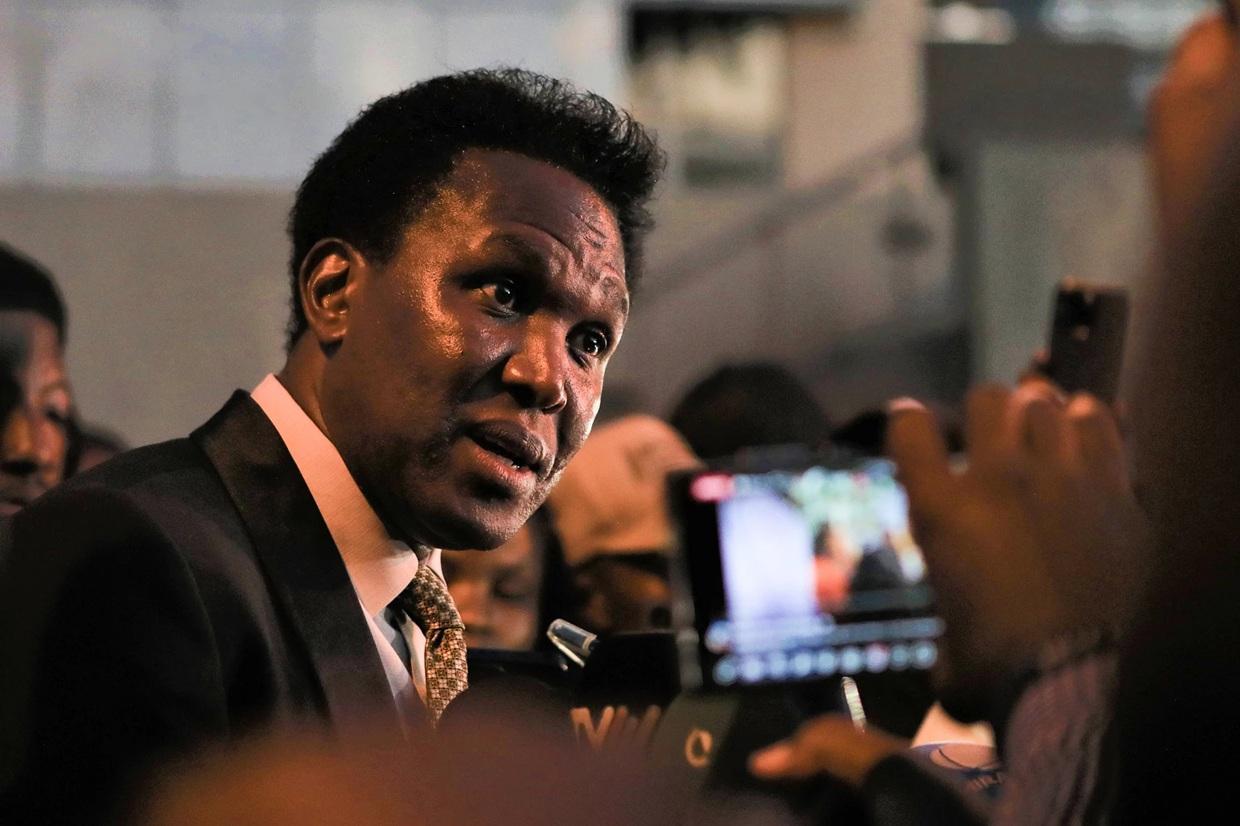Africa-Press – Mozambique. Mozambique’s Ministry of Justice has given politician Venâncio Mondlane 30 days to review the acronym Anamalala of the party he intends to create, as it is an expression of a local language, contrary to the objectives of “national unity” and curbing separatism.
In a letter from the Ministry of Justice, Constitutional and Religious Affairs, signed by Minister Mateus Saíze, dated 28 May and seen by Lusa today, it is stated that the term “Anamalala”, proposed as an acronym for National Alliance for a Free and Autonomous Mozambique, comes from the Macua language spoken in Nampula, in the north of the country, “and therefore already carries a linguistic meaning for those who express themselves in it”.
Anamalala means “it will end” or “it is over”, an expression used by former presidential candidate Venâncio Mondlane during the campaign for the general elections on 9 October and which became popular during the protests he called in the following months, when he refused to recognise the results of the vote.
“The fact that it has a meaning as part of a local language prevents its use as a party acronym, as this falls under ethnic and linguistic aspects, which violates the CRM [Constitution] and the Political Parties Law, which stipulate that parties must aim to strengthen national unity, contribute to the peace and stability of the country, and therefore cannot be separatist in nature or based on regional ethnic groups, which is why the inadequacy of the party’s acronym is a fundamental issue and must be reviewed,” the order states, among other arguments, namely regarding the construction of the party’s acronym or initials.
The order adds that the statutes of the party that Venâncio Mondlane intends to create “do not fit the concept of principles and are not in line” with the Constitution of the Republic or the Political Parties Act, and also requests that they be corrected.
The document thus acknowledges that “some irregularities have been found that prevent the authorisation of the application for creation before they are regularised” by the end of this month, such as: “Adapting the acronym, as it does not derive from the name of the proposed party”.
Venâncio Mondlane has not yet commented on this communication.
However, the Minister of Justice met on 9 June in Maputo with a delegation from the former presidential candidate to assess the process of legalising the political force, under a request submitted to that ministry on 3 April.
“The minister said that the process is being analysed with due rigour and that an official statement on the matter will be issued shortly,” Venâncio Mondlane said in a statement posted on his Facebook page.
The Mozambican politician, who has been a member of the country’s main parties, decided to create his own political force after disagreements with the Povo Optimista para o Desenvolvimento de Moçambique (Podemos) party, a former extra-parliamentary group that gained notoriety after signing a “political agreement” with Mondlane for the 9 October elections.
As a result of the “political agreement,” Podemos, made up of dissidents from the Mozambique Liberation Front (Frelimo) and which has never had a member of parliament since its creation in 2019, became the largest opposition party, dethroning the Mozambican National Resistance (Renamo), which had been the leader since the first multiparty elections in 1994.
Since the October elections, Mozambique has experienced a climate of intense social unrest, with demonstrations and strikes called by Mondlane, who rejects the election results that gave victory to Daniel Chapo, supported by the ruling Frelimo party.
According to non-governmental organisations monitoring the electoral process, around 400 people lost their lives in clashes with the police, which ended after a meeting between Mondlane and Chapo on 23 March, repeated on 20 May, intending to pacify the country.
For More News And Analysis About Mozambique Follow Africa-Press






